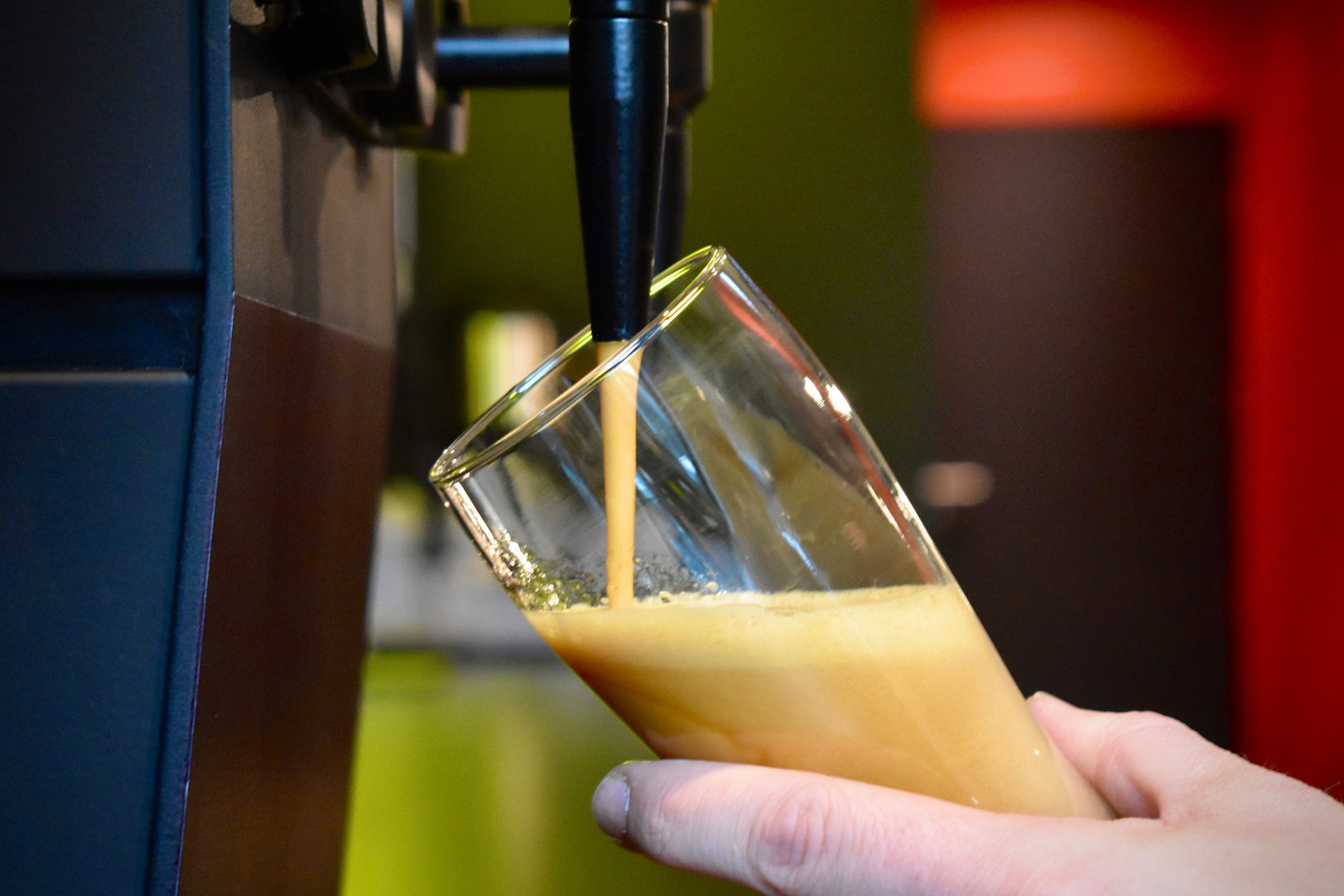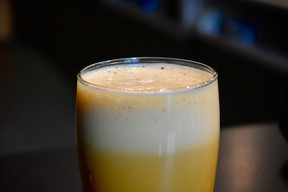“When I started working in the specialty coffee business--like, 15 years ago--it was €5 for a bag of good Kenyan coffee. Nowadays it’s more like €15 to €20.”
While Damien Sosson, proprietor of Jolt Coffee Roasters, is telling me this (we’re sitting in the roastery of his newly opened café), I’m staring at a pile of gigantic bags on the floor. “One of those bags is €15?”
He follows my gaze, neurons fire, laughter erupts. “No, those are--that one is €800!”
So went my hourlong tutorial on coffee, during which the 37-year-old Belgian barista-turned-proprietor humoured--with extraordinarily good nature--my wide-eyed ignorance. Sosson is the coffee expert on the team of five behind Jolt, which opened in Belval in early November.
The above snippet of conversation comes from his explanation of “specialty coffee,” a movement, born in the 1990s, that put the drink under the remit of serious artisans. The apt-if-obvious analogy is to wine: viticulture has a status to it, a science and tradition, which Sosson wants to bring to the brewing of--watch me jettison my journalistic impartiality before your very eyes--the world’s greatest drink.
“Specialty coffee is a philosophy,” Sosson tells me, removing the lid from a large plastic bin to reveal several kilos of beans. Half a moment later, the aroma hits: roasted coffee, deeply cut with notes of caramel and biscuit, creating a false and wondrous perception of warmth.
Philosophy as process
Sosson takes me through the process of creating specialty coffee. First, he orders small sample bags of coffee from various farmers. Some guidance is offered via flavour descriptions but otherwise you must taste to discover what you’ve bought. “It’s like wine: you’ve got good years and bad years. You can fall in love with a farm, and the year after you’re like…” Sosson winces, then grins. “Disappointed.”
Then comes the “cupping,” an activity he was in the middle of when I arrived for the interview. On a table is a laptop, open to a graph whose hundreds of data points I don’t understand but which, I’m told, helps track the attributes of the various coffees. Beside the laptop is a row of five cups. Sosson explains that they roast their sample beans, grind them, put them in a cup and simply add hot water. “Like infusing a tea,” he says. “And we have spoons and… we slurp the whole day.” He laughs loudly. “Then we buy the coffee that pleases us.”
If Sosson seems slightly drunk on power, he might be: he worked at well-known coffee roaster Knopes for 15 years before quitting and setting up his own shop, where now he can Willy-Wonka with cheerful abandon. Next he shows me the roaster, an enormous floor-to-ceiling machine with a sort of control panel attached; on a screen is another hopelessly complex display. Sosson explains that by adjusting the flames, airflow and air pressure, you can extract certain flavours, more structure or body, or more sweetness or bitterness. With this he determines the “recipe” for each coffee he buys.
Despite the apps and machinery, however, the process remains an art. “We don’t want to be just processors; we want to be roasters,” he says, adding that with this machine you can check on the beans as they roast and even listen to them crack when they’re nearly ready. “There is an artisan part of this job, which is so pleasant--and so incredible.”
Philosophy as drink
Two-thirds of Jolt is the roastery; the remaining third is the café. (Interested coffee devotees will be pleased to know that a huge glass pane separates the two, affording a view of the artisans at work.) Naturally they offer the classics: Americano, cappuccino, café latte, flat white, filter coffee, etc. Sosson rifles through these and then starts saying something about funky drinks, craft coffees, nitrogen, azote (apparently, says Google, another word for nitrogen), when he interrupts himself: “I’ll show you. Can I show you?”
Excitedly, he leads me to the bar, produces a glass, opens a cupboard to show me a bag of cold brew, closes it, puts the glass under an honest-to-god beer tap--“emulsifier” is the word--pulls the tap like a bartender.
“Serving coffee like a beer,” he says, handing me the glass. The foam at the top isn’t milk (obviously) but gaseous bubbles of the coffee itself. I take a sip: there is a lightness in it that evokes sweetness, though no sugar is present, and a complex fruity finish to the taste.
At this point he opens more cupboards and starts producing all manner of little machines, filters, funnels and hotplates. I drink the emulsified coffee while he makes me a traditional pour-over, which offers a different texture to espresso methodologies. He explains that this area of the café--the “slow bar”--is where people can sit, hear about the beans currently on roast, chat about coffee in general.
Which is, before I know it, what we’re doing. Luckily I’m recording our interview, because my brain begins revving unreliably like an old car engine thanks to all the caffeine. Dipping randomly into the playback, I hear Sosson merrily dropping specifics like: “The cooler it gets, the more complex it becomes--you’ve got all the floral flavours and acidity. Because when it’s hot like this--maybe 45 or 40 degrees--the heat covers all those acid components and sweet components…”
I must confess that I felt a little sick--caffeine-saturated--when I left, but that barely kept me away for 24 hours. Ultimately, I’m happy to know that my engagement with something as ubiquitous as coffee can be reenchanted. And that I know where to go to get the good stuff.
The specs
Jolt Coffee Roasters is located in Belval and open weekdays, 8:00am-3:00pm. or visit them at 3-5 Avenue du Swing, L-4367 Belvaux.




